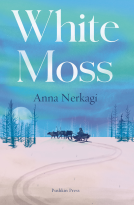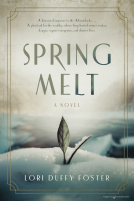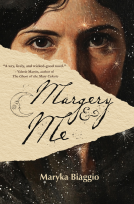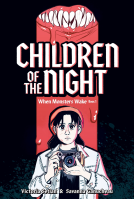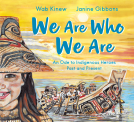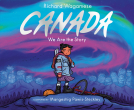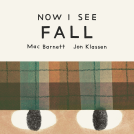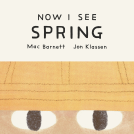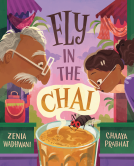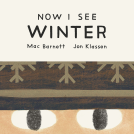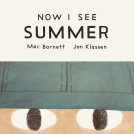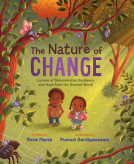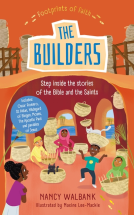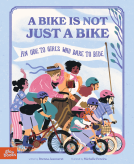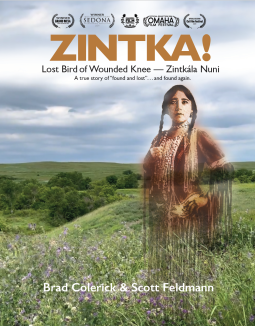
Zintka!
Lost Bird of Wounded Knee — Zintkála Nuni
by Brad Colerick & Scott Feldmann
This title was previously available on NetGalley and is now archived.
Send NetGalley books directly to your Kindle or Kindle app
1
To read on a Kindle or Kindle app, please add kindle@netgalley.com as an approved email address to receive files in your Amazon account. Click here for step-by-step instructions.
2
Also find your Kindle email address within your Amazon account, and enter it here.
Pub Date 27 Sep 2024 | Archive Date 15 Jan 2025
Description
48 pages include: illustrated lyrics as ledger art, short bio of Zintka, historic timeline, song lyrics and lead sheet plus a brief description of ledger art genre. QR Code links to short film online.
A true story of "found & lost". . . and found again. Zintka tells the troubled tale of a Native American girl caught between two worlds, accepted by neither. A Lakota (Sioux) baby and her mother who were fleeing for safety became victims in the Wounded Knee Massacre of 1890. The baby was found four days after a South Dakota blizzard, alive by the warmth of her mother's dead body. She was adopted by a prominent soldier and his famous suffragette wife to be raised in their white, high-society circles. Zintka was not accepted there because of racial prejudices in the era of forced assimilation. Neither was she was accepted by her own people when she sought out her roots, partly because she did not speak their language.
Named "Lost Bird," (Zintkála Nuni in Lakota,) at the moment she was separated from her Lakota caregivers, she was chronicled in newspapers from her discovery to her death. Zintka attempted to succeed in show business, joining Buffalo Bill's Wild West Show, San Francisco's vaudeville circuit, and as an extra in Hollywood silent films. Zintka died in the Great Influenza Pandemic of 1918-1920 and was buried in a pauper's grave in Hanford, California. Finally, in 1991 her story was discovered through efforts of her biographer Renée Sansom Flood. Lakota leadership from the Pine Ridge Reservation in South Dakota ceremoniously reburied her at the Wounded Knee Monument, near the mass grave of the disaster, which included her birth mother.
The name "Lost Bird" came to describe Native American children adopted off the reservation by non-Indians after the publication of her biography, "Lost Bird: Spirit of the Lakota" (Scribner, 1995).
A Note From the Publisher
Advance Praise
“A poignant multimedia journey that beautifully combines art, music, and the written word to detail a long-overlooked life.”
— Kirkus Reviews
"A BookLife Review Editor’s Pick for outstanding quality called out as a: “Stunning artistic recreation of Zintkála Nuni’s story.”
“I love the book… it tells such an important story with empathy and precision.”
— Mary Pipher, Ph.D., author of "Reviving Ophelia", "Women Rowing North", and other books including four New York Times bestsellers
“Your use of photographs, ledger art and treatment of illustrations is very sophisticated and dynamic.”
- Arthur Amiotte, Oglala Lakota artist, Art Historian, Custer, SD
“. . . a heartbreaking and moving story and I'm glad to have met her.”
- Melanie Solar, Librarian, Academic, University of Manitoba
“Zintka mashes together Brad Colerick’s haunting, thought-stimulating song with Scott Feldmann’s dancing, juxtaposed visual imagery into a compelling portrayal.”
— Steve Fjeldsted, Director of Library, Arts, and Culture, South Pasadena Public Library 2006 - 2019; previously County Library Director in Central, and Northern California
“You have an amazing way of presenting history, and that needs to be shared broadly!”
— Chris Hochstetler, Executive Director - Stuhr Museum of the Prairie Pioneer
“WELL, WELL, WELL!! This is one of the best and artistic films on the subject of forgotten American Indians that I have ever seen. Congratulations on this excellent film.”
- Marc Wanamaker, Founder of Bison Archives; renown historian, archivist, and expert in film history.
Marketing Plan
Book launches at various film festivals as "Lost Bird (Zintkála Nuni)" is selected and screened. Winner at Sedona, Black Hills and Grand Mesa. Official Selection at Pasadena, Omaha, Ridgway and South Dakota festivals. More are yet to be announced.
Showcased at the Stuhr Museum, Grand Island, NE and Niles Essaay Silent Film Museum, Niles, CA. Book is for sale at Akta Lakota Museum and Prairie Edge Trading Post i South Dakota. Film already screened at The Ross at University of Nebraska, (as prelude to War Pony by Riley Keough and Gina Gammell) ,The Fountain Theatre in Messilla, NM, the Mary D. Fisher Theatre in Sedona, AZ and with Red Fever in Niles CA.
Screenings and book signings always invite Native American speakers from the locality.
Available Editions
| EDITION | Hardcover |
| ISBN | 9798218439644 |
| PRICE | $29.99 (USD) |
| PAGES | 48 |
Available on NetGalley
Average rating from 9 members
Featured Reviews
 Fran E, Reviewer
Fran E, Reviewer
The Ghost Dance was a Native American dance of renewal. It was a prayer for both dead relatives and the buffalo to return, a prayer for the restoration of Indian culture and their way of life. The combination of sensational newspaper headlines and memories of Custer’s Last Stand, created fear among the settlers. The US government called for the arrest of Ghost Dance leaders including Sitting Bull who was quickly assassinated at Standing Rock Reservation on December 15, 1890. The massacre at Wounded Knee Creek in South Dakota would soon follow.
At Wounded Knee, Indian braves were disarmed and killed, women and children slaughtered. A detail was sent to bury the dead, however, an icy blizzard and sub zero temperatures delayed the burial by four days. A weak cry…a baby discovered…the body of her dead mother had kept her warm. Named Zintkala Nuni (Lost Bird) by the Lakota, the infant was taken by Brigadier General Colby as a trophy of war. He had used trickery and barter, then adopted the baby by forging his wife’s signature. Clara Colby, was a devoted mother to Zinta despite being away six months a year working with suffragists in Washington, DC. She was an associate of Susan B. Anthony and Elizbeth Cady Stanton.
Zinta was always on display at numerous receptions, a curiosity to most in attendance. Set apart from other children, she grew to question her identity. She liked to frequently examine her baby moccasins and bracelet. Running away from home, she traveled to Standing Rock Reservation in search of her birth family. Having been snatched from the Lakota people as an infant, she did not understand the language, traditions and spirituality of Native American culture. She was unable to communicate.
Seventy years after being buried in a pauper’s grave on February 14, 1920, Zintkala Nuni was repatriated. Observing proper tradition, she was reburied, honored and mourned at Wounded Knee on July 11,1991.She had come home.
The story of “The Waif of Wounded Knee”, lost between two worlds came to life through the award winning “Best Mixed Media Short” called “Lost Bird” screened at the Sedona International Film Festival in February, 2024. The seven minute animated film presents a multifaceted view of the cost of forced assimilation on the identity and emotional well being of native children adopted away from the reservation.
Zintka! is described as a hybrid format book. An emotionally descriptive song written by singer/songwriter Brad Colerick, the book’s co-author, tells Zinta’s story. Co-author Scott Feldmann creates an animontage, illustrations in an animation style. Ledger Art in primitive drawings follow the Indian tradition of drawing their history. Winter counts show pictographic calendars of historical events. The Ledger Art is superimposed on a background of newspaper articles, historical photographs and handwritten military reports of casualties. Feldman supplies biological information as well as a timeline of Zinta’s life. The sheet music and words for “Little Bird-Lost Bird of Wounded Knee” are included.
Zintka! by Brad Colerick and Scott Feldmann presents “the troubled tale of a Native American girl caught between two worlds, accepted by neither during her lifetime.” A magnificent, highly recommended read.
Thank you Deep Magic Song & Drawing Co. and Net Galley for the ARC in exchange for an honest review.
 Carolyn C, Librarian
Carolyn C, Librarian
I don't think I have words to accurately describe how touching and important this book and the accompanying short video and song are. In a time when we as a nation are reconciling the damage done to indigenous Americans through Indian boarding schools and genocide, this book is a timely snapshot of the losses experienced by Zintkala Nuni.
The first thing I hope to convey is the stunning artwork and use of collage (described as a moving montage or "animontage" in the film--which is a must-watch to fully appreciate this accompanying book.) The art is both inspired by ledger art, and uses original art from Lakota artists of the era (Including Battiste Good, Yellow Nose, and other anonymous artists. The authors also used photographs of Zintka and the colonizers to show her age progression. There is also a beautiful collage effect in which the images are transposed over broken treaties or photographs of the aftermath of wounded knee.
The next important thing is the timeline, which gives a detailed account to Zintka's life and losses. The fact that she was treated as a trophy of war, and stolen from her people is just the beginning. Over the course of her life, Zintka is treated as an anomaly, neither fitting in with her tribe, nor that of the white family that adopted her.
The book includes a score for the song, which could have a greater impact if the reader is musically inclined. I am not, so I went directly to deepmagic.fun, the authors' website which shows the short film to watch the full musical art piece. It was stunning in its clarity and brevity. I hope to see more films and books from Brad Colerick because this will stay with me for a long time.
*Zintka: The Lost Bird* tells a heartbreaking yet powerful story of a Native American girl caught between two worlds. Born during the Wounded Knee Massacre, Zintka was found alive after a brutal blizzard, only to be adopted by a prominent white couple. Despite her upbringing in high society, she faced rejection both from the Lakota people and the white world due to racial prejudice. The book follows her troubled journey through show business, her tragic death, and the eventual rediscovery of her story decades later. With a mix of illustrated lyrics, a brief bio, and a QR code linking to a short film, this 48-page book is an intimate look at a forgotten life and a poignant reminder of the history of Native American children. It's a touching read for anyone interested in history, culture, or stories of resilience.
 Raven N, Reviewer
Raven N, Reviewer
This was an interesting book about a tragic figure from a tragic point in American history who I had unfortunately never heard of prior to this work.
Zintkala Nuni was a troubled individual, and I'm very saddened by how she was treated during her lifetime. I'm glad that she was eventually laid to rest properly and with the respect that she deserved. It breaks my heart that she kept trying to connect with her heritage throughout her life, but was unable.
Credit has to be given to her original biographer, Renee Sansom Flood, for giving her back her voice.
All that being said, the format was a little difficult for me to get into, with the majority of the information being conveyed through a timeline. It felt more like a presentation than a book and would have preferred it being a bit more fleshed out.
I personally felt as though the images seemed more natural when in motion, but I enjoyed learning that the images utilized were (or inspired by) traditional Native American ledger art, something I had been unfamiliar with prior to this.
In addition, I feel like the fact that this was a companion piece was relied upon a bit too heavily, and the work was unable to truly stand on its own.
Still, I am grateful to have read this and to have learned about Zintkala/Zintka.
Thank you to NetGalley for the ARC.
 Librarian 1411604
Librarian 1411604
Thank you to Net Galley for the ARC of this book. I shouldn't be surprised by the fact that I have never heard of the Lost Bird of Wounded Knee, or her story, but I guess that is par for the course. This was a heartbreaking and moving story and I'm glad to have met her. I do wish there was more though.
Thank you to NetGalley and Deep Magic Song & Drawing Co. for the eARC of this beautiful book.
4 stars out of 5.
Zintka! by Brad Colerick and Scott Feldmann is a non-fiction book about a stolen, orphaned Lakota (Sioux) baby girl named a many a thing. Over her lifetime she had many names and the only one unknown is her birth name given to her by her slaughtered parents.
Brad and Scott join together to tell the story of Zintka and the unstable path she traveled upon in her young life of approx. 23 years.
The font was very tiny which gave the book itself a tiny feeling, leaving me wondering why her story is as short as her lifespan. This has led me to start looking for more books and information to read.
That's what a book like this should have you doing when you're done
Success!!
Readers who liked this book also liked:
Victoria Setian
Comics & Graphic Novels, Teens & YA
